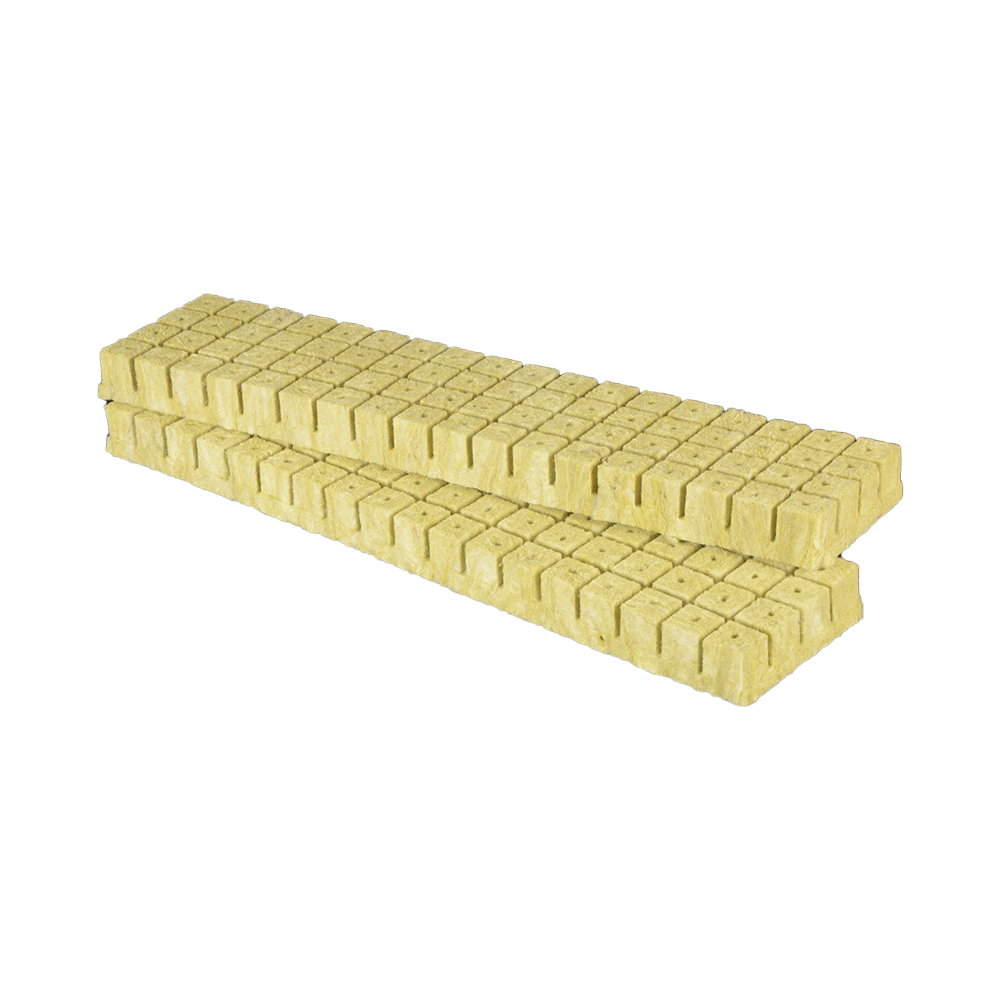
Rockwool cubes are a widely used growing medium in hydroponic systems due to their excellent water retention and aeration capabilities. To fully harness their benefits and promote plant health, growers must address some common challenges. This guide covers four key issues—contamination, pH instability, excessive water retention, and disposal concerns—and provides practical solutions to overcome them.
Risk of Contamination
Rockwool cubes are a great choice for hydroponic farming. However, if left unsealed or stored improperly, they can collect dirt, pathogens, and bacteria. Contamination often causes plant diseases in hydroponic systems, reducing yields and spreading rapidly to other plants. To prevent this, use sealed or wrapped Rockwool cubes to block out dirt and harmful microbes. Store the cubes in a dry, clean space to lower the risk of contamination and protect your hydroponic setup from infections that could harm plant health.pH Instability
A common issue with Rockwool cubes is their naturally high pH, which can block nutrient absorption and cause deficiencies. Plants grown in untreated Rockwool often struggle due to nutrient lockout. To fix this, soak Rockwool cubes in a pH-balanced solution (around 5.5) before use. Regularly checking and adjusting your hydroponic system’s pH ensures plants absorb nutrients effectively, leading to healthy growth and higher yields. By addressing pH problems early, you create a strong foundation for a successful hydroponic garden.Excessive Water Retention
Rockwool cubes retain water exceptionally well, but over-saturation can restrict oxygen to roots, leading to root rot and slow growth. Wet Rockwool can also promote mold and algae growth on the surface. To prevent these issues, set an irrigation schedule that allows proper drainage between watering sessions. Make sure your hydroponic system has good drainage and keeps roots aerated. These steps prevent over-saturation and support healthy plant development.Disposal and Environmental Concerns
Rockwool cubes are highly effective but non-biodegradable, raising environmental concerns. Improper disposal adds to landfill waste and harms the environment. To reduce waste, sterilize and reuse Rockwool cubes when possible. For final disposal, check for recycling programs in your area that accept mineral wool products. Responsible disposal supports sustainable farming practices and lowers your environmental impact.
Conclusion
Rockwool cubes are a valuable tool in hydroponic farming, offering excellent water retention and aeration. To maximize their benefits, address challenges like contamination, pH instability, over-saturation, and disposal. Using sealed Rockwool cubes ensures a clean start, while proper pH management and irrigation practices optimize plant growth. By tackling these issues and adopting eco-friendly disposal practices, you can establish a sustainable hydroponic system that yields healthier plants and higher productivity. In the UAE, where hydroponic farming is growing, following these steps with premium Rockwool cubes can give you a competitive advantage in sustainable agriculture.